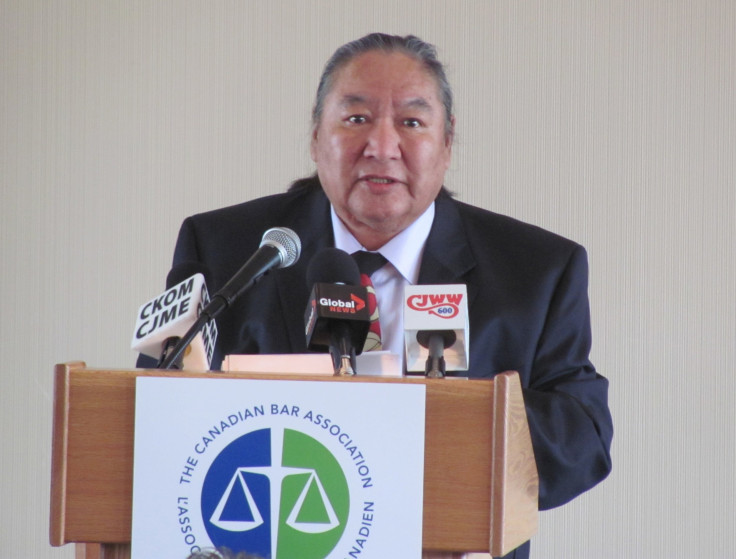Elijah Harper Dead: Aboriginal Politician Dies At 64 From Diabetes

Politician and aboriginal leader Elijah Harper died Friday morning at the age of 64. His family said he died from heart failure, a complication from his diabetes.
The soft-spoken Harper was and continues to be a symbol of power for aboriginals who struggle to be recognized and considered in the Canadian policy-making process.
Harper was the former chief of the Ojibwa-Cree Red Sucker Lake First Nation in Manitoba, Canada, a position to which he was elected in 1978. He enjoyed a long political career and is probably best known for his refusal to accept the Meech Lake Accord, a constitutional amendment that was negotiated without input from Canada's aboriginals in 1990. He held an eagle feather as he took the stand in the Manitoba legislature, an act in solidarity with the country's aboriginal people.
On his decision to make that symbolic gesture in the legislature, Harper said, "I stalled and killed it because I didn't think it offered anything to the aboriginal people."
Harper is also known for his dedication to healing the tense relationships between aboriginal and non-aboriginal people in Canada. Most famously, his Sacred Assembly in 1995 developed a Reconciliation Proclamation.
"Elijah was a wonderful man, father [and] partner. He was a true leader and visionary in every sense of the word," his family said in a statement. "He will have a place in Canadian history forever for his devotion to public service and uniting his fellow First Nations with pride, determination and resolve."



























